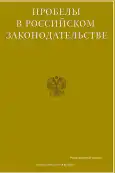Fire Training as an Important Component of the Professional Training of Police Officers
- Authors: Kardanov A.K.1
-
Affiliations:
- Krasnodar University of the Ministry of Internal Affairs of Russia
- Issue: Vol 16, No 5 (2023)
- Pages: 54-59
- Section: Current problems of training and development of internal affairs staff in modern conditions
- URL: https://journal-vniispk.ru/2072-3164/article/view/250119
- EDN: https://elibrary.ru/NDWFZQ
- ID: 250119
Cite item
Abstract
The purpose of this study is to study ways to optimize and improve the fire training of police officers in the structure of their professional training.
The quarantine conditions not only caused the COVID-19 crisis, but also showed that educational organizations of the Ministry of Internal Affairs of Russia can work remotely. The need for the transition of education to digital reality turned out to be more tangible than before. The modern world uses the Internet everywhere, there are almost no industries where these technologies would not be used. The crisis has caused certain consequences that need to be paid attention to. This is especially true for training and education.
The objectives of the study are to assess the impact of digital transformations on the fire training of police officers.
It is established that digital education is a new important stage of development for the educational process. A global approach will help to develop this direction, as it has great prospects and makes education more accessible to the masses, regardless of geographical location, social status and age. However, we must not forget about the existing risks, the fight against which should come to the fore. To do this, not only educational institutions and developers of individual programs should contribute, but also the students themselves and the legislator. Then the implementation of digital education will become more qualitative.
It is concluded that with the development of the digital educational process for fire training, the emergence of risks is inevitable, the higher the demands and technical progress, the higher the dangers will be. That is why it is necessary to develop clear algorithms, due to which it will be possible to minimize negative consequences or completely eliminate their occurrence. Since the digitalization of education is an inevitable process, it must be transformed into a tool for the development of modern society and the educational sphere as a whole.
Full Text
##article.viewOnOriginalSite##About the authors
Arsen K. Kardanov
Krasnodar University of the Ministry of Internal Affairs of Russia
Author for correspondence.
Email: arsen.kardanov.68@mail.ru
Cand.Sci.(Pedagogics), Police Colonel, Associate Professor of the Department of Fire Training, North Caucasus Institute for Advanced Studies (branch)
Russian Federation, Nalchik, KBRReferences
- Abidov R.R. Legal foundations of the organization of fire training of police officers // Journal of Applied Research. 2021. Vol. 1. No. 5. pp. 88-91.
- Gedgafov M.M. Application of modern training technologies in the training of shooters // Education. The science. Scientific personnel. 2021. No. 1. pp. 148-150.
- Davydov M.V. Problems of the use of firearms by police officers // Scientific Bulletin of the Orel Law Institute of the Ministry of Internal Affairs of Russia named after V.V. Lukyanov. 2019. No. 3 (80). pp. 49-53.
- Kardanov A.K. The influence of physical fitness on the shooting technique of students of educational organizations of the Ministry of Internal Affairs of Russia // Gaps in Russian legislation. 2021. Vol. 14. No. 4. pp. 75-78.
- Korneeva M.P. Problems of the organization of professional training in the internal affairs bodies of the Russian Federation // In the collection: Topical issues of improving professional training in the internal affairs bodies of the Russian Federation. Materials of the All-Russian Round table. Academy of Management of the Ministry of Internal Affairs of Russia. 2019. pp. 8-11.
- Pyrchev S.V., Afanasyev V.S. On the issue of the use of firearms of limited destruction by employees of the internal affairs bodies of the Russian Federation // Academic Thought. 2020. No. 4 (13). pp. 127-133.
- Pyrchev S.V. Firearms of limited use in the armament of the internal affairs bodies of the Russian Federation: state and prospects // In the collection: Strategic development of the system of the Ministry of Internal Affairs of Russia: state, trends, prospects. Materials of the international scientific and practical conference / Section "Organization of fire and physical training" on the topic: Topical issues of organization of fire and physical training in the internal affairs bodies. 2020. pp. 124-133.
- Solonitskaya E.V., Lapshin I.E. Formation of models of lawful use of firearms among students of educational organizations of the Ministry of Internal Affairs of Russia // Philosophy of Law. 2016. No. 2 (75). pp. 121-125.
- Kharaev A.A., Kodzov T.N., Seleznev S.A. Some features of training in shooting techniques in a limited time for law enforcement officers // Problems of modern pedagogical education. 2022. No. 77-2. pp. 387-389.
- Cherkesov A.Y. Fire training of police officers as part of service and combat training // In the collection: Innovations in Science and practice. Collection of works based on the materials of the VI All-Russian competition of scientific research works. Ufa, 2021. pp. 104-109.
- Cherkesov A.Yu. Pedagogical conditions for improving the fire training of police officers // Education. The science. Scientific personnel. 2021. No. 1. pp. 227-229.
- Yakushev V.A., Filimonov V.A., Mitin A.A. Actual issues of the organization of fire and physical training in the territorial bodies of the Ministry of Internal Affairs of Russia // Education. The science. Scientific personnel. 2019. No. 4. pp. 239-241.
Supplementary files








